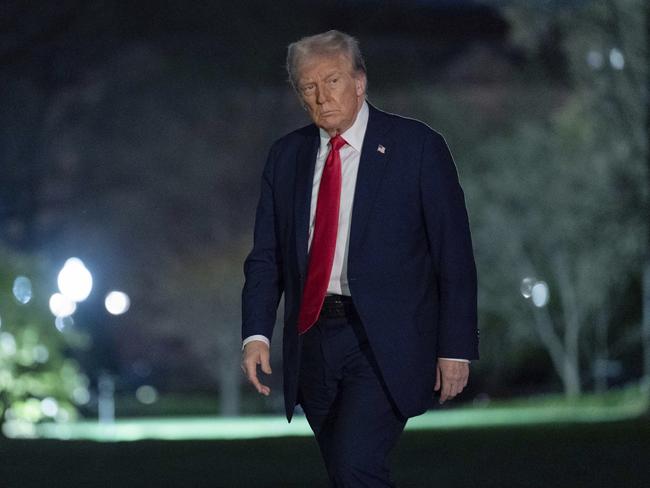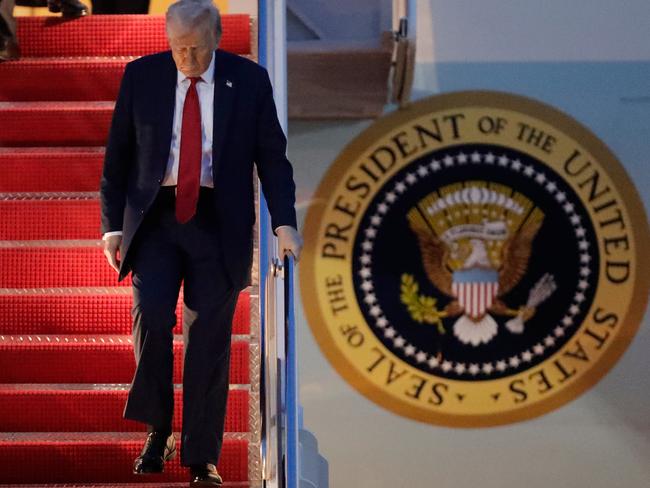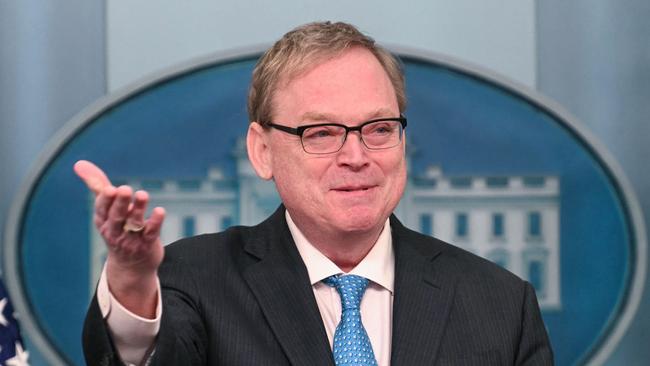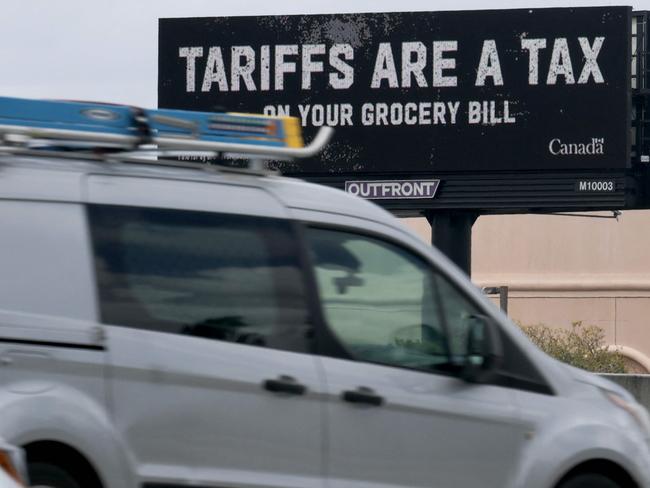Donald Trump rules out Aussie tariff exemption
Billions of dollars worth of Australian meat and pharmaceuticals exports are set to be impacted by Donald Trump’s sweeping reciprocal tariffs, set to be introduced on Wednesday.
North America
Don't miss out on the headlines from North America. Followed categories will be added to My News.
Donald Trump has announced his “liberation day” tariffs will apply to all countries, dashing Australia’s hopes of securing a last-minute exemption.
Speaking to reporters on board Air Force One, Mr Trump rubbished reports that the tariffs might only apply to 10 to 15 countries.
“You’d start with all countries,” he said.
“So let’s see what happens.”
Asked to clarify if all nations would be included in the April 2 rollout, Mr Trump said: “Essentially all of the countries we’re talking about.”

The President said his reciprocal tariffs would be “far more generous than those countries were to us”.
“Meaning they will be kinder than those countries were to the United States of America over the decades,” he said.
“They ripped us off like no country has ever been ripped off in history and we’re going to be much nicer than they were to us but it’s substantial money for the country nevertheless.”

The US President has promised to impose sweeping reciprocal tariffs from Wednesday, with fears billions of dollars worth of Australian meat and pharmaceuticals exports will be impacted.
Days before the tariff deadline, White House economic adviser Kevin Hassett told Fox News decisions were still being made.
“President Trump has a long run vision of the golden age of America and we’re working really, really hard to get it out there in time,” he said.
“I can’t give you any forward-looking guidance on what’s gonna happen this week.
“The president has got a heck of a lot of analysis before him, and he’s gonna make the right choice I’m sure.”
Unlike his global imposition of 25 per cent tariffs on steel and aluminium exports earlier this month, Mr Trump had indicated he is open to negotiating with countries that are “willing to give us something of great value”.
“Because countries have things of great value, otherwise, there’s no room for negotiation,” he said.
But so far no country has managed to successfully negotiate a carve out.

The reciprocal tariffs will be implemented one day before the US slaps 25 per cent levies on all car and auto parts imported into the US.
Experts have warned the move will drive up foreign car prices in the US by thousands of dollars, to which Mr Trump said he “couldn’t care less”.
“I hope they raise their prices, because if they do, people are going to buy American-made cars.
“We have plenty.”
The President also flagged the possibility of imposing additional tariffs on Russian oil if Vladimir Putin does not work towards ending his war with Ukraine.
White House aide Peter Navarro revealed the looming auto tariffs would raise $100 billion a year and the reciprocal tariffs would raise $600 billion a year.

The reciprocal tariffs are expected to dominate Australia’s federal election campaign this week with both Prime Minister Anthony Albanese and Opposition Leader Peter Dutton claiming they are best positioned to negotiate with Mr Trump.
Mr Albanese said he expected to have a one-on-one conversation with the American leader about the tariffs, although it was unclear when that would take place.
“Tariffs are an increase in price for the purchases of the goods and services, so they impose increased costs on American buyers,” Mr Albanese said.
“We believe in free and fair trade. The US enjoys a trade surplus with Australia. We are pointing that out very clearly.”
Mr Trump has spruiked the April 2 tariffs as ‘liberation day’ for America.
“For years we have been ripped off by virtually every country in the world, both friend and foe,” he wrote on Truth Social.
“But those days are over – America First!”




